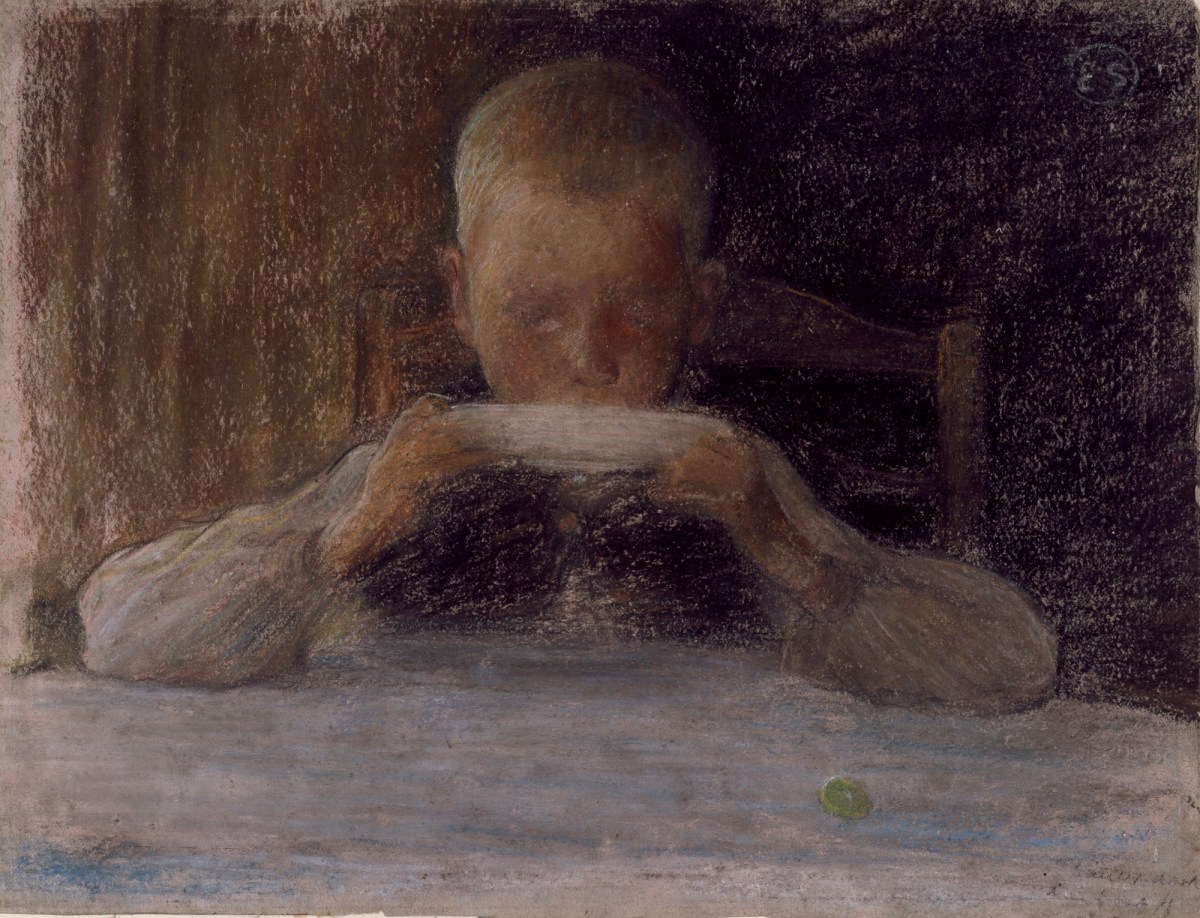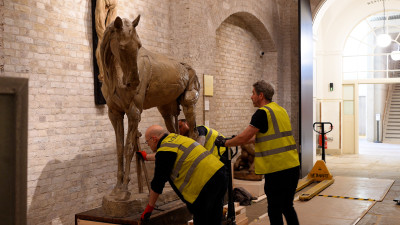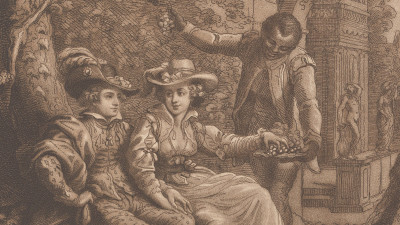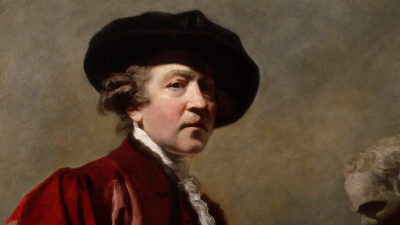
Edward Stott ARA, Boy at Breakfast (Study for 'Sunday Morning'), 1901.
Pastel on laid grey paper. 223 mm x 290 mm. © Photo: Royal Academy of Arts, London.
This image is not available to download. To licence this image for commercial purposes, contact our Picture Library at picturelibrary@royalacademy.org.uk
Boy at Breakfast (Study for 'Sunday Morning'), 1901
Edward Stott ARA (1859 - 1918)
RA Collection: Art
This pastel study of a boy drinking from a bowl for Stott's painting Sunday Morning (exh. 1901, Manchester Art Gallery) was bequeathed to the Royal Academy by the artist Carel Weight RA, who was an avid collector of Stott's work.
Edward Stott was born in Rochdale, near Manchester, in 1859 and studied in Paris under Alexandre Cabanel and Carolus-Duran. During these formative years he was impressed by the work of French painters like Jules Bastien-Lepage, Jean-Baptiste-Camille Corot and Jean-François Millet, and began his career employing a 'plein air' style similar to that of George Clausen, Claude Monet and Henry Herbert La Thangue. Based in Amberley, West Sussex, from 1889 onwards, Stott concentrated on naturalistic depictions of rural life, which he would compose in a number of drawings before finishing the final painting in the studio. Stott frequently used pastel, a medium he valued for its spontaneity and hazy effects.
Described as 'the poet-painter of the twilight' in 1908, Stott imbued depictions of everyday life with an ethereal quality that is more overtly expressed in this biblical scene. Stott became increasingly interested in religious subjects later in his career and the list of his exhibits at the Royal Academy annual exhibition includes several similar titles: There was no room at the inn (1910), The Sacred Pool (1915), The Entombment (1915) and The Holy Family (1917).
Object details
223 mm x 290 mm
Start exploring the RA Collection
- Explore art works, paint-smeared palettes, scribbled letters and more...
- Artists and architects have run the RA for 250 years.
Our Collection is a record of them.



